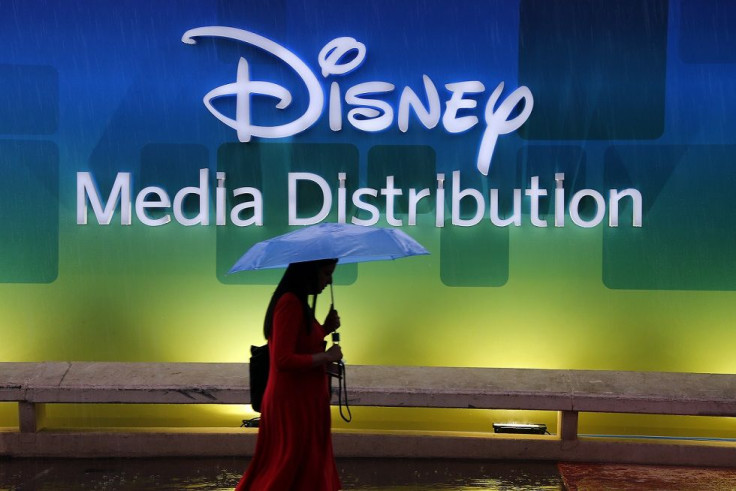Disney Targeted By Cable Bundle Critics In Campaign Urging More Consumer Choice On TV

Imagine going to the dentist for a simple teeth cleaning and the receptionist demands that you also pay for an unnecessary root canal and other pricey procedures. That’s the absurd scenario one consumer-advocacy group is using to highlight what it calls the “madness” of the cable-TV industry, which has long subsisted on a diet of bloated channel line-ups in which popular networks are bundled together with less popular ones. As Nielsen reported last year -- and anyone with a cable bill can confirm -- the average TV home pays for a staggering 189 television channels, but watches just 17 percent of them.
Consumer Action, an advocacy organization based in San Francisco, says enough is enough.
Earlier this month, the group launched its “Bust the Bundle” campaign, urging media companies to allow consumers to pick and choose which networks they want to pay for. As part of the campaign, the group has released a series of short satirical videos imagining ridiculous scenarios like the bundled dental procedures illustrated above. Another video features mock interviews with executives from the fictional Championship Eating Network, a niche channel that focuses on “competitive eating.” Executives boast that the channel is available in 10 million households despite having virtually zero viewership.
“We are bundled with the cable company’s most popular sports packages,” one executive says in the video.
Over 100,000 consumers want the freedom to pick their channels. http://t.co/UPBDuq1U4N #BustTheBundle pic.twitter.com/bRKur7sg4C
- Consumer Action (@consumeraction) May 22, 2015In an online petition launched by Consumer Action earlier this month, the group places the blame on media companies for clinging to the bundled status quo even as new technologies in streaming television are making on-demand viewing and slimmed-down cable packages a reality. (The petition has been signed by more than 129,000 people, but a spokeswoman for Change.org said it was a sponsored campaign and someone paid to increase its reach.) In the petition, Consumer Action singles out the Walt Disney Company, which owns a number of cable networks, including the sports powerhouse ESPN. “It’s time companies like Disney think of their customers and adjust to how we view video,” the petition states.
Spokespeople for Disney and Consumer Action did not immediately respond to a request for comment.
Disney is increasingly finding itself at the center of the bundle debate. Last month, ESPN filed a lawsuit against Verizon Communications, which began offering “skinny” cable bundles as part of its FiOS television service. The lawsuit asserts that the custom offerings violate its current carriage agreement, which presumably prohibits distributors from unbundling ESPN and offering the network outside of core cable packages. ESPN, by far, commands the highest programming fees on cable, costing the average subscriber $6 a month, according to research from SNL Kagan.
Who Is Really To Blame?
Cable bills have continued to rise even as viewership on traditional television has declined, placing the age-old cable bundle under increasing scrutiny from consumer groups and viewers, more and more of whom are starting to ask exactly what it is they’re paying for. As a number of analysts have pointed out, busting the bundle may turn out to more expensive in the long run, as consumers would be forced to pay for content on an a la carte basis and content companies would have to charge accordingly.
Not everyone buys that argument. “Let’s face it, the cable industry is frightened,” Tim Winter of the watchdog group Parents Television Council said in a statement last year. “That is why the only voices opposed to unbundling come from those who profit from bundling.”
PTC has long been opposed to cable bundles on the grounds that parents seeking family-friendly entertainment should not be forced to “subsidize” raunchy content on, say, MTV or Fox. But even if we all agreed that doing away with the bundle is a great thing, it’s not clear that targeting media companies will be enough. Many TV programmers may not have the rights to unbundle their networks even if they wanted to.
Cable distribution is a complicated ecosphere of terms and conditions, with media companies locked into long-term contracts that restrict their ability to distribute their content on alternative platforms. For instance, Disney’s carriage deal with Comcast -- the country’s largest cable operator -- doesn’t expire until 2022.
Moreover, cable and satellite providers commonly include “most favored nation” clauses in their contracts, which require content owners to give them the best possible deal for their programming. That means if a media company decided it wanted to experiment with unbundling its networks on, for instance, a streaming service that offers skinny packages, it could be contractually obligated to turn around and give all the large cable companies reduced rates. The entire business model that holds cable TV together could unravel pretty quickly.
In the meantime, paying your cable bill is only expected to get more painful. At least there’s Novocain.
Christopher Zara is a senior writer who covers media and culture. News tips? Email me here. Follow me on Twitter @christopherzara.
© Copyright IBTimes 2024. All rights reserved.






















